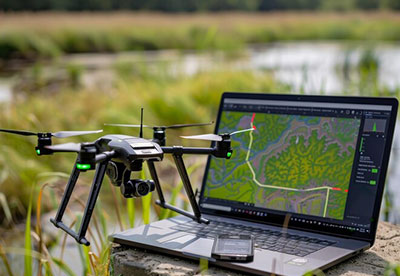As per the reports by S & P Global, data volumes produced in the oil and gas sector had surpassed 10TB of data per day for just a single well. This data is accumulated from different sources including well logs, drilling reports, seismic data, drilling rigs, frack performance data, CAD drawings, and so on.
But the question is how such huge data can be managed for data-intensive industries like oil and gas, where data is being produced by leaps and bounds. Managing mountains of data presents a significant challenge.
This is where cloud solutions emerge as a robust solution.
Cloud platforms offer flexible and scalable options to manage enormous datasets efficiently. In this blog, we will witness how the most prominent challenges of oil and gas can be tackled by adopting cloud solutions. Let’s dive in
Cost Saving
Storing data on on-premises IT infrastructure incurs huge capital investment and operational expenses. Moreover, maintaining and upgrading this hardware involves additional costs. Migrating to the cloud reduces the need for physical infrastructure and instead, oil and gas companies can opt for a pay-as-you-go model and can pay only for the space and resources they use. The consolidated data stored further helps in performing analytics and drawing insights quickly.
Remote Access and Enhanced Collaboration
Without clear visibility into oil fields, including wells, pipelines, refineries, and overall production visibility, can slow down decision-making processes, which can impact productivity. While adoption of cloud solutions can solve the visibility issue by offering remote access. Cloud platforms enable real-time data access from anywhere and at any time. Additionally, this facilitates better collaboration among dispersed teams by allowing document sharing and boosting communication across teams.
Data Storage Solutions
In oil and gas fields, exploration activities, regulatory compliance reporting, and operations expansion create demands for scalability. These growing demands can be addressed efficiently by adopting scalable cloud solutions. Cloud platforms offer resources that can be scaled up or down based on demand. Additionally, cloud-based platforms can be integrated with IoT platforms to handle bulk data from sensors and devices deployed across oil fields, oil rigs, pipelines, and so on.
Minimizes Downtime at Work
The unplanned outages in the O &G fields are a common issue but they can be reduced to some extent. Integration of Cloud technology can significantly help in lowering downtime in the oil and gas industry by leveraging IoT devices and sensors installed on equipment, providing real-time data on the health and working condition of machinery. Predictive analytics and machine learning algorithms powered by the cloud can help in predicting potential equipment downtime in advance before then occurs. Thus, oil and gas sectors can protect themselves from financial losses by preventing oil field disruptions.
Reducing Green House Gas Emissions
As per reports, oil and gas operations that are from extraction, production, refining, and distribution account for around 15% of total energy-related emissions globally, which is equivalent to 5.1 billion tons of greenhouse gas emissions. This statement highlights the need for targeted actions to reduce these emissions. With cloud adoption, one of the other problems of oil and gas can be tackled. With cloud solutions, the O & G industry can leverage predictive maintenance, optimized supply chain management, and enhanced energy management to contribute to the broader global effort to combat climate change.
Summing Up
The oil and gas industry undoubtedly produces vast amounts of data. Cloud computing can help manage this data efficiently and help companies mitigate costs, storage issues, methane and CO2 emissions, machine downtime setbacks, and so on.
We at Canopus Infosystems, with years of experience serving the oil and gas sector, can help you implement cloud solutions so that you can manage field operations efficiently. With our proven proficiency, we provide services that exceed your expectations.
3 mins read

















